Every year, the Flyer devotes an issue to honoring the best and brightest Memphians under 30. This year, our readers nominated more than 50 exceptional young people from all walks of life. Whittling the list down to 20 was a difficult — and inspiring — job. There is so much talent here.
As always, 20<30 is about what these young people are doing, but it’s mostly about the future. These are some of the young leaders who will shape tomorrow’s Memphis, and we’re giving you a preview of what that city might look like. Short version: We’re in very good hands, indeed.

Jessica Beasley
Jessica Beasley
When we say the 20<30 will build the future of Memphis, in Jessica Beasley’s case, we mean that literally. Beasley is a structural engineer and designer for Varco Pruden Buildings. In a typical day, she says, “I’m told about a project that needs to be built, and I’m either given some architectural plans, or we have to use our imagination.”
Beasley then creates the buildings virtually to estimate the cost of the materials and labor that will be used to build them. “Starting from nothing and creating something is pretty awesome!”
Originally from Nashville, Beasley was inspired to become an engineer by the Architecture, Construction, and Engineering mentor program. Beasley is paying it forward with the National Society of Black Engineers (NSBE) Junior program. “The kids in that program are so passionate about learning and knowing. It’s just crazy where Memphis is about to go, and it starts with the youth.”
She’s also taken a much more direct route to influencing the future: Jessica and her husband Quincy have just welcomed a new son, Nathan Kingston Beasley, into the world.
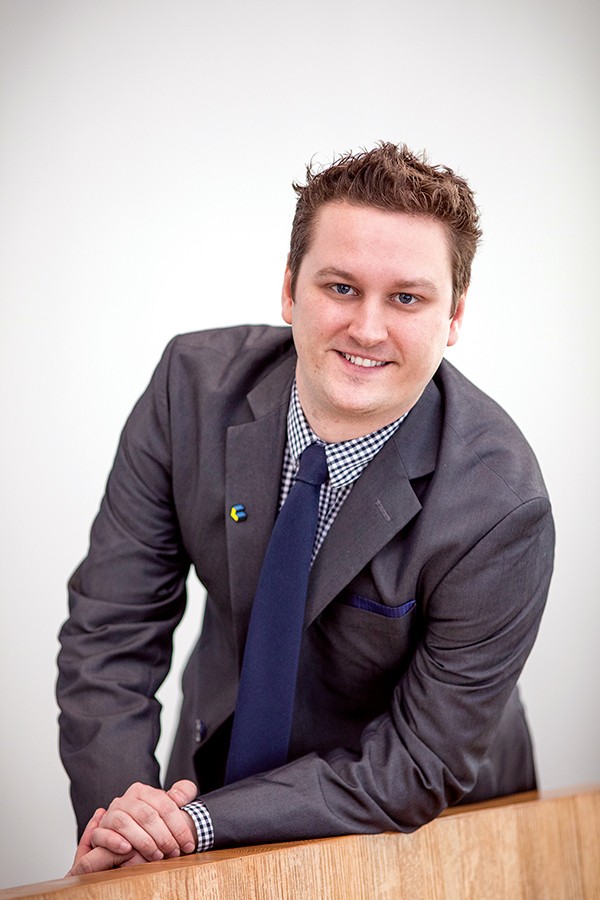
Jared Bulluck
Jared Bulluck
What does Jared Bulluck, Senior Director of Community and Alumni Engagement for Leadership Memphis, like about the Bluff City? “The potential it has to be great,” he says. “Any time there’s something new and exciting happening, I like to be a part of that. I feel like, with the work I do today, I’m attuned to those situations and to the individuals doing great things in Memphis.”
What has his time at an organization devoted to preparing and mobilizing leaders taught him? “A good leader is charismatic, enthusiastic, and passionate about the work they do,” he says. “To be a good leader, you have to have a good team around you. The only way for you to succeed is for everyone else around you to succeed.”
Bulluck says increased diversity is the only way forward for Memphis. “The nature of my work, and why I was so attracted to being here at Leadership Memphis, is because we continue to bring people from all across the city, all across the socioeconomic spectrum together, to make these connections and make themselves better.”
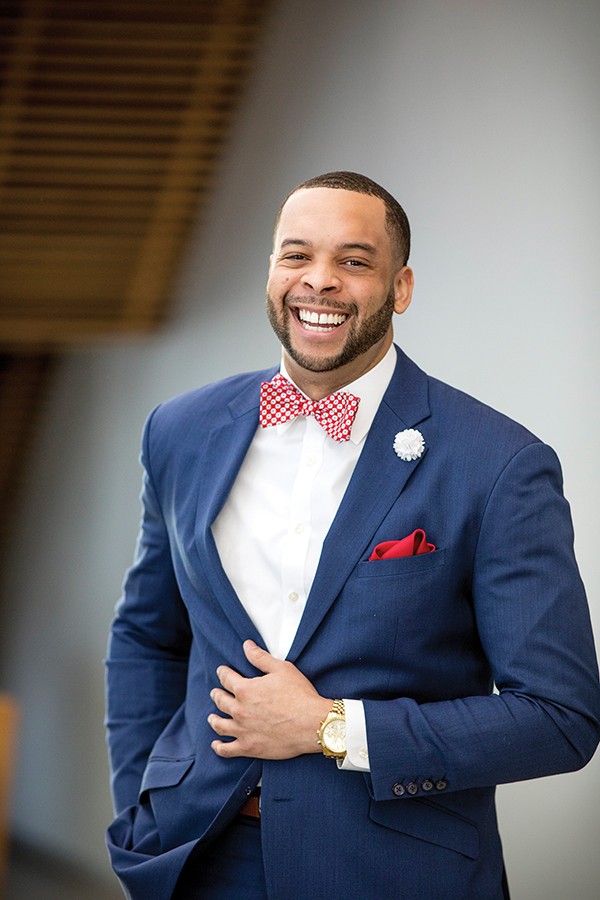
Corbin I. Carpenter
Corbin I. Carpenter
Forty years ago, Charles Carpenter founded a law firm in Memphis. “He’s been around so long, there are attorneys who are now judges, and he trained them.” says Corbin I. Carpenter, who now practices with his father at the firm.
“We do corporate and municipal finance. That’s heavy transactional work,” he says. “Public work projects, big revenue bonds, single- and multi-family housing. That’s what I like. In my job, we are able to help the masses. Low-income, impoverished people deserve to have quality housing.”
Carpenter also serves as the chairman of the board of STS Enterprises, a mentoring and service program that helps shape the future of young, at-risk men and women. “We talk about grooming, we talk about sex, we talk about manhood, the importance of respecting your brother, the importance of giving back and financial literacy. We teach them everything from A to Z to give them the tools they need to go toward college, to go toward the workforce, to go toward service. It’s up to people who have it or know how to get it to go and uplift the unempowered and impoverished people.”
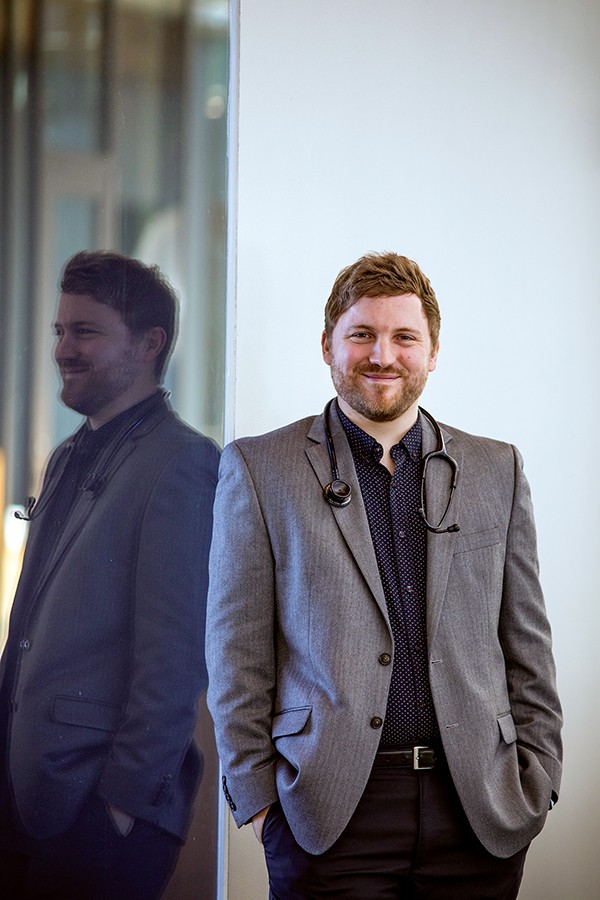
Nathan Crumley
Nathan Crumley
“My stepdad was in an accident around the time I graduated high school,” Nathan Crumley recalls. “He was burned pretty significantly. So I spent a lot of the summer between high school and college in a burn unit in North Carolina.”
That experience put Crumley on a path to a nursing degree at University of Tennessee Health Sciences Center. His last few years have been spent working in the burn unit at Regional One Health. “I’ve dealt with a lot of people with life-altering injuries. People are a lot stronger than they give themselves credit for. They dig down deep into their reserves and find some really inspiring strength.”
(Crumley’s tips on how to avoid ending up in the burn ward: Don’t cook meth, don’t burn trash or leaves in your back yard, and never, ever throw gasoline on a bonfire. “That’s a good way to mess yourself up real quick,” he says.)
Crumley has recently taken a new position in the St. Jude pediatric ICU. “My path is guided from my experiences,” he says. “As an infant, I spent time as a patient in the pediatric ICU. I’m hoping I can make kids’ experience, and the experience of their parents, the best it can be.”
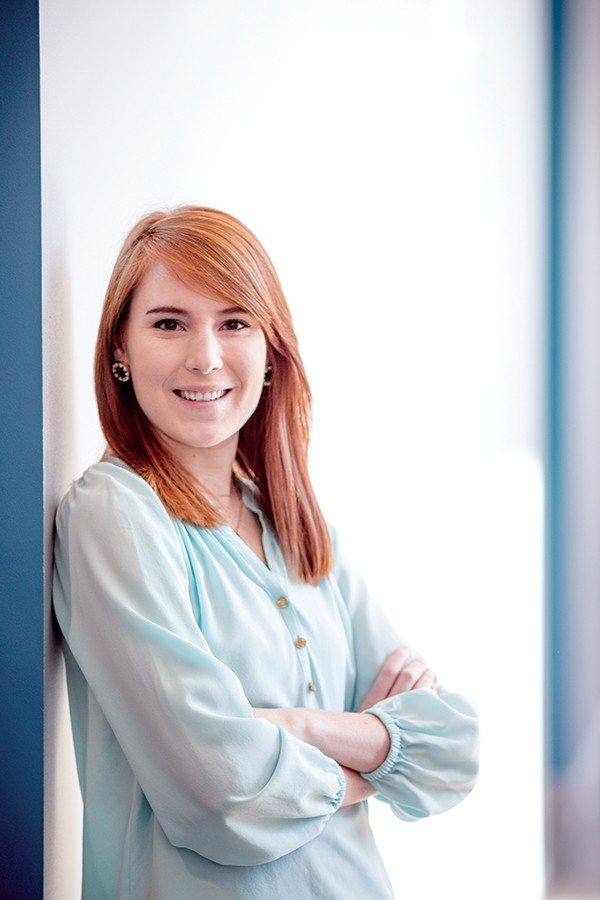
Victoria Honnell
Victoria Honnell
When Victoria Honnell came to Memphis as a Rhodes College freshman, she knew no one in Memphis. “I have no family within 1,000 miles of the South,” says the native of New Mexico. “I wanted my own little adventure, to try something new.”
Honnell’s grandfather was a physicist at Los Alamos National Laboratory, where her father is a chemical engineer, and her mother a laboratory assistant. “I was destined to be some kind of scientist, but I’m the first biologist in the family,” she says.
She majored in neuroscience, and with her hard-science degree, Honnell could have gone anywhere after undergrad, but she decided to stay. “Memphis was my home; it was comfortable. I really enjoyed the neighborhood. And I liked seeing how Memphis has grown since I came here in 2011. I love this city.”
Along with 11 others, Honnell was accepted into the inaugural class of St. Jude’s new Ph.D program, where she is studying to be a developmental neurobiologist. “I know we’re the guinea pigs, but St. Jude is known for exceptional work, and I don’t think their Ph.D program is going to be any different.”
Honnell also trains as a long distance runner, and recently competed in the St. Jude marathon. But science and research are her abiding passion. “Advancing cures for different diseases and improving human life. That’s my drive.”

Lawrence Matthews
Lawrence Matthews
Lawrence Matthews is a painter, photographer, and multi-media artist. As “Don Lifted,” he is one of Memphis’ most innovative popular hip-hop musicians. And now, inspired by the music videos he has done with Kevin Brooks and the work he has done with Northwest Prep School, Crosstown Arts, and Binghampton’s Carpenter Art Garden, he is moving into filmmaking. “I don’t think about anything as not connected. I make stuff. I’m just a creator, just an artist. My gift is the gift of creation. That’s what I’m noticing as I get older. It’s not ‘I can paint’ or ‘I can rap’ or ‘I can sing.’ I can create things. I wish I had understood that when I was in high school and college. Now I see that I can do whatever I choose to do.”
Don Lifted is planning a full schedule of singles and music videos ahead of the September release of his second album Contour. Matthews is also working on his first full-length documentary, which will address gentrification and its impact on the lives of Memphis’ vulnerable youth. “These choices that the overarching powers are making are ruining the lives of young black kids,” he says. “I want to tell their story with the platform I have. The future will have more of that from me — using my platform to educate and try to change things.”
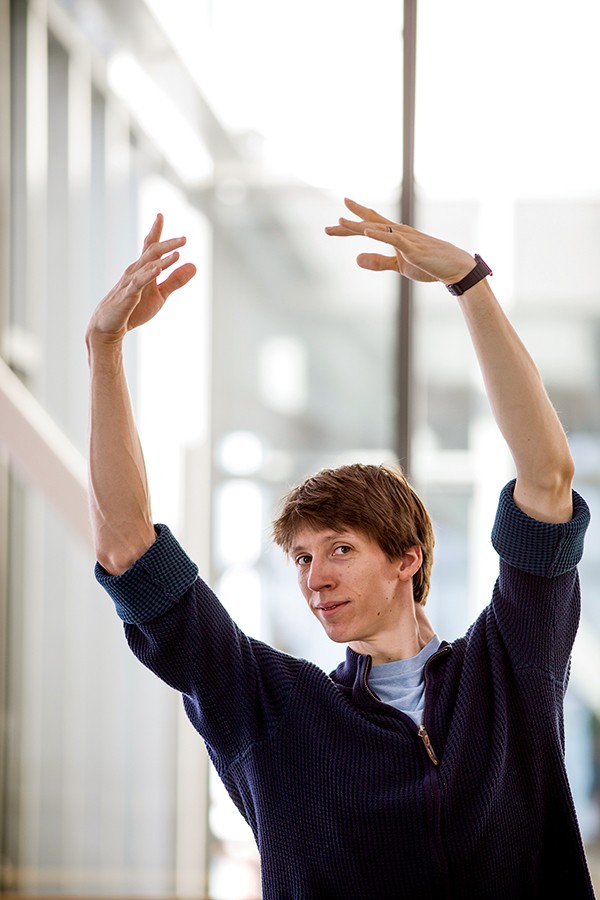
Brandon Ramey
Brandon Ramey
How did Brandon Ramey get into ballet? “It happened by chance,” he says. “It was a school trip to the see the Boston Ballet’s Nutcracker. I was seven years old, and I thought it was the coolest thing in the world.”
In 2009, Ramey was attending the San Francisco Ballet School when he auditioned for Ballet Memphis’ Dorothy Gunther Pugh. “Within a couple of days, she had a contract in the mail for me,” he says. “When I first showed up in Memphis, it was culture shock for sure. I thought Memphis was a pyramid and Graceland and blues music. But it’s been so much more than that.”
For Ballet Memphis, the 6’5” Ramey has been the lead dancer in Swan Lake, Cinderella, The Darting Eyes, and Water of the Flowery Mill. In 2011, he was paired with Virginia Pilgrim in The Nutcracker. “She was the sugarplum fairy, and I was the cavalier. It was that fairytale story. We stared working together, then dancing together, and there was some chemistry there that was just a little bit deeper than all that, and we fell in love.”
Now married, the couple recently got a new house in Cooper-Young and teach together at the new Ballet Memphis school. “When I moved here, Overton Square was boarded up. The French Quarter Inn looked like a haunted hotel. Just seeing what Memphis has done over the past nine years has been incredible.”

Rehana Rashid
Rehana Rashid
Rehana Rashid came to Memphis after getting a degree in marketing from the University of Alabama. She thought she would be getting into advertising, “but it took a turn into holistic well-being and wellness,” she says. “I grew up dancing and doing ballet, classical dance. I then started getting into fitness when I came to Memphis. I developed a Barre program that went back to the fundamental techniques in ballet, and put that into a community center setting.”
Rashid’s holistic wellness studies led her to Bali, where she trained at Awakened Life School of Yoga. “That was when I was going through a really bad divorce. It was a natural step for me and helped me heal myself. I think that’s the way God or the Universe works.”
Now, Rashid is the marketing director for the Kroc Center, where she also teaches multiple fitness and yoga classes. “The Kroc Center is a great place to be. It was developed to be a place that was strategic, serving both affluent and underprivileged neighborhoods.”
Rashid says she loves the Bluff City because it’s a place where she can make a difference. “I found faith and friends and what became a family. I’ve seen that change happen in my own personal life, and I’ve been humbled to see that change in others. There’s been a lot of pain in Memphis, but there’s a lot of healing as well.”
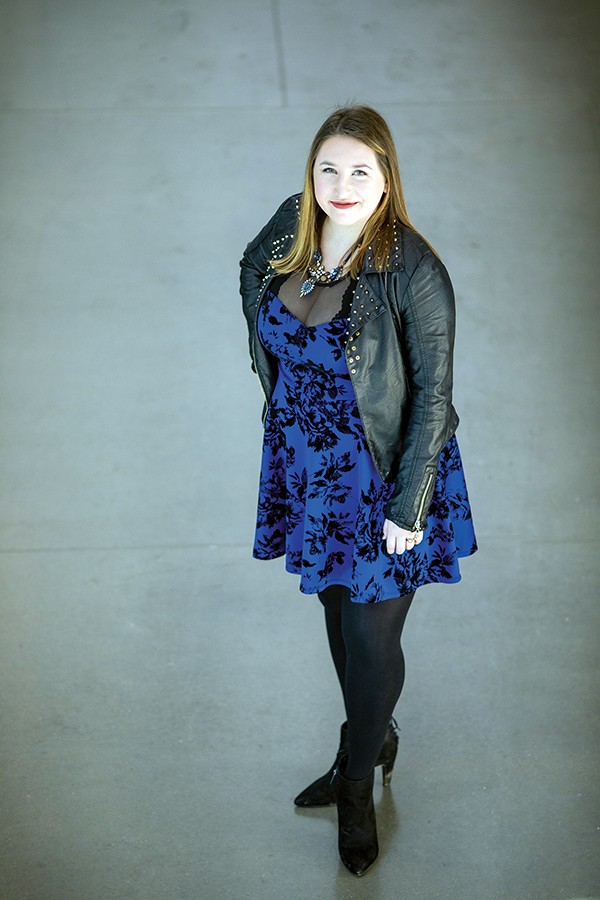
Emily Rooker
Emily Rooker
Music has always been a force in Emily Rooker’s life. Her father, who died when she was seven, was a singer and guitarist. She started piano lessons when she was 12, and vocal lessons when she was 14. In high school, she was into choir, community theater, and at age 16, recorded her first album. She left her native Michigan to attend Berklee College of Music in Boston, but once she came to Memphis, she fit right in. “I feel like the musicians here are so welcoming and encouraging. When I was living in Boston, there was a really high barrier for entry. You couldn’t jump on a bill with another local band. Here, people are more like, come on in, the water’s fine.”
Rooker is a project manager with the UrbanArt Commission. “I remember the first time I came to Memphis, I was driving through Cooper-Young and I loved that trestle piece, which was actually an UrbanArt Commission piece. It really drew me to living here. So the opportunity to come on at UAC was very appealing to me,” she says. “We’re trying to strategically reimagine what public art should look like and how people interact with it.”
Rooker is a core organizer with the Memphis Feminist Collective. Her band, Name and the Nouns, will release its first album early this year, and she recently got engaged to her long-time boyfriend. “Since I’ve been here, I’ve been able to plug in, meet fabulous people, and do creative projects. I think this is sort of the perfect place for me to spend my twenties. I’m not leaving anytime soon.”

Susanne Salehi
Susanne Salehi
Growing up in Memphis, Susanne Salehi says she felt like an outsider. “There was a sense of always being different. ‘Where are you from?’ Well, my dad is from Iran, if that’s what you’re asking. That’s why I look this way. I barely notice now, but when you’re a kid, you’re more sensitive to these things.”
This summer, Salehi will begin the MFA writing program at the University of the South in Sewanne. Her current emphasis is on creative nonfiction. “I’ve been exploring what it means to be the Other. I just came out as a lesbian three years ago. So I’m still trying to find my place with all that, especially in the South.”
Salehi is currently the Grants and Community Engagement Coordinator for the Southern College of Optometry. “I started wearing glasses in the first grade, so I know that wearing glasses can change a life. If you can’t see, it’s not just academics, it’s your shyness. Not to mention that 80 percent of your learning is done visually. So I’m huge on making sure that everyone, children especially, is able to access eye care.”
She is also passionate about her volunteer work, which includes mentoring at Youth Villages, and planning events for OUTMemphis. “That’s what I love about it here,” she says. “You can get involved and make a difference.”
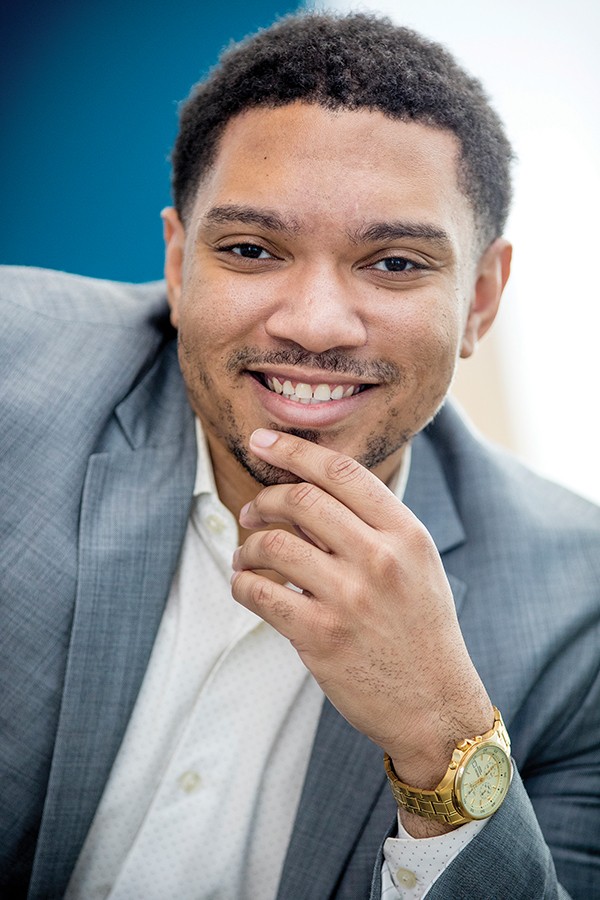
Steven Sanders
Steven Sanders
Steven Sanders was a fixture on the football field at Whitehaven High School. “What drew me back every summer to the two-a-days was the guys in the trenches with me. That made it worthwhile to me. The biggest thing I took away from it was leadership. When I was named captain my senior year, they saw leadership qualities in me that I didn’t see in myself.”
After a year of playing college ball, Sanders returned to Memphis to pursue a marketing degree. “The business classes I took, most of them focused on FedEx — how FedEx got started, and what they did to be successful.”
Sanders now works for the Memphis-based logistics giant as a marketing specialist. “The biggest lesson I’ve taken away from working there is the emphasis FedEx places on its employees. At FedEx, we believe in living PSP — People, Service, Profit. That concept is all around. If you take care of the people, they’re going to perform well for your customers and drive them to provide great service, and that great service is going to turn into profits.”
Sanders is passionate about helping Memphis by volunteering as a mentor for at-risk youth, presenting a face of success many of his mentees never thought possible. “Once they see someone who looks like them, who has come from the same circumstances that they have come from and has made it out of that, for a lot of them, it is life-changing.”
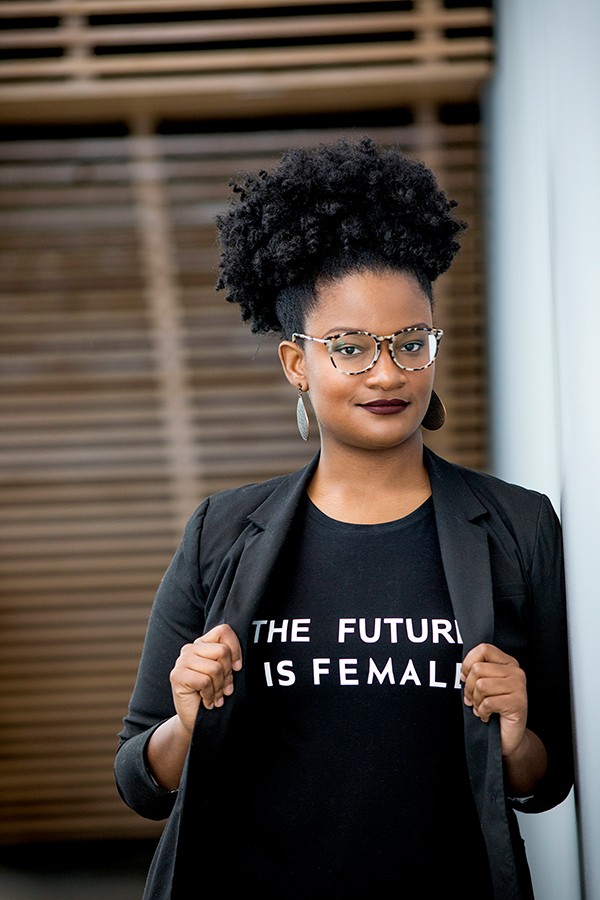
Louisa Shepherd
Louisa Shepherd
Even though her current job description is Entrepreneurial Ecosystem Builder and Brain-Based Leadership Coach, Louisa Shepherd is a classically trained clarinetist. “When I was studying music, I was a really entrepreneurial person. I was coming up with ways to make money by selling musical equipment. I came up with innovative ways to issue musical equipment to people using barcodes. My teacher was like, ‘You’re really going places. But maybe not playing.'”
Shepherd is the Director of Collective Impact at Epicenter, Memphis, where she helps prepare people for tomorrow’s economy. “I believe the future of work is one that entrepreneurs will have an upper hand in,” she says. “When my parents were young, it was like, go to school, get a job, and they’ll take care of you forever. Now, that’s just not the case. People need to embrace that.”
Epicenter Memphis’ ambitious mission is to create 500 new companies and 1,000 new entrepreneurs in the Bluff City by 2025. “This place is really ripe with opportunity on the entrepreneurial level. I thought it was a really great place for me to pursue my business, coaching creative people, first-time executives, in career and business strategy. I want to help other people see this city like I see this city.”
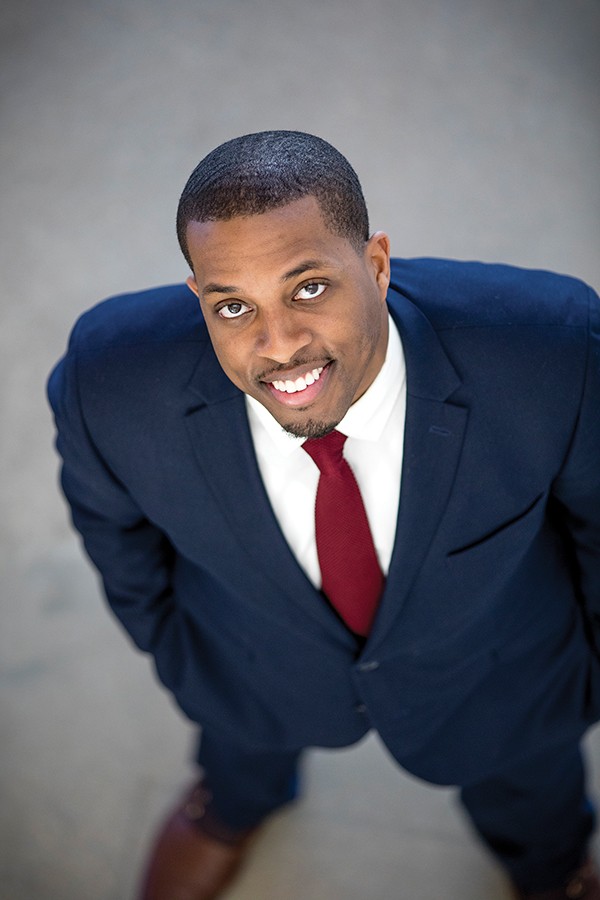
J.B. Smiley
J.B. Smiley
J.B. Smiley was four years old when his parents divorced. “I spent the summers in South Memphis, and the school year I spent in East Memphis and Bartlett,” he recalls. “Definitely different perspectives. I go to one part of town, and people tell me I’m rich. I go to the other part of town, and I’m like, ‘Man, I’m poor!'”
Smiley was a basketball star at Bolton High School, and went on to play college hoops at Tennessee Tech before transferring to the University of Pikeville in Kentucky, a move he credits with expanding his horizons. “I used to tell people that I wanted to be Michael Jordon and Johnny Cochran. Nobody told me I couldn’t be both things.”
Smiley got a law degree from the University of Arkansas, then practiced corporate law with a big firm. “Financially, it was very rewarding,” he says. “But something was missing.” So Smiley struck out on his own. “Now, I like to do the kind of law I like to do,” he says, “which is interacting with people — hearing their stories, trying to find solutions to their problems.”
Then he ran across a study revealing that people in the 38026 and 38126 zip codes have a life expectancy 13 years lower than the national average. Now, he is running for the District 8 seat on the Shelby County Commission. “I believe God puts you in certain positions so you can carry out his mission.”
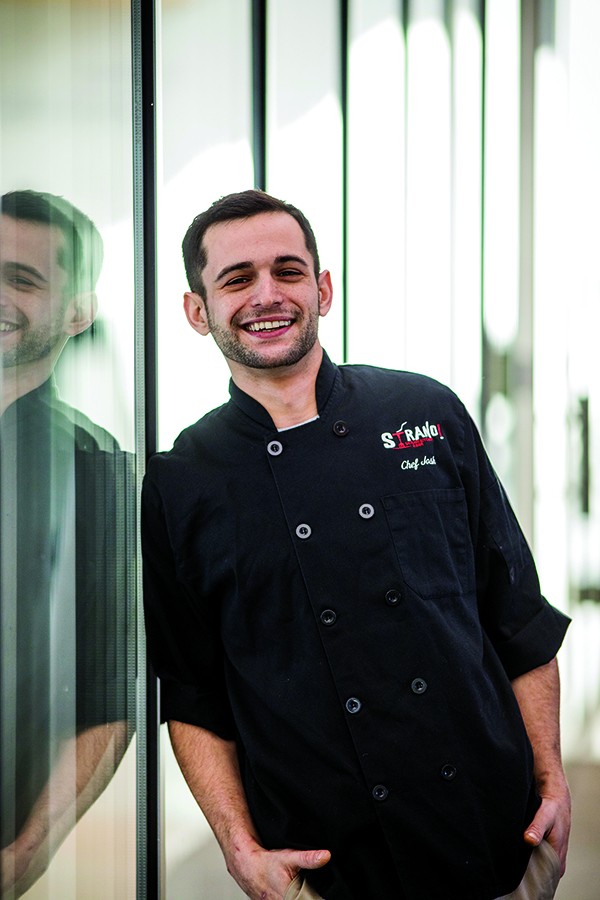
Josh Steiner
Josh Steiner
For years, a progression of eateries came and went on the northeast corner of Cooper-Young. Then, Strano moved in and appears to have broken the curse. The Italian restaurant has amassed a loyal following and a solid reputation, thanks to chef and owner Josh Steiner.
Steiner grew up on a farm in the Germantown/Collierville area. His passion for cuisine came early. “When I was 13 or 14, I lied about my age on an application so I could go wash dishes at a restaurant in Collierville,” he says. “I was cooking food on the line before I could drive. I went to the University of Arizona to try to be a doctor like my dad, and that taught me the science behind cooking — denaturing alcohol, breaking down foods into chemical compounds, the physical properties of things.”
Steiner’s medical ambitions didn’t last long, but his side hustle of selling cheesecakes took off. “I built up enough money to fund an LLC before I was 20,” he says. He attended L’Ecole Culinaire in Memphis, and opened his first restaurant when he was 23.
Steiner says his cooking is inspired by his family’s heritage. “My cuisine is kind of a fusion: Old World, working with your hands, and Moroccan, working outside on a spit, and the Sicilian-Mediterranean world, working with fish. If you could create anything from scratch, you absolutely have to do it. That’s how my grandmothers taught me to cook.”
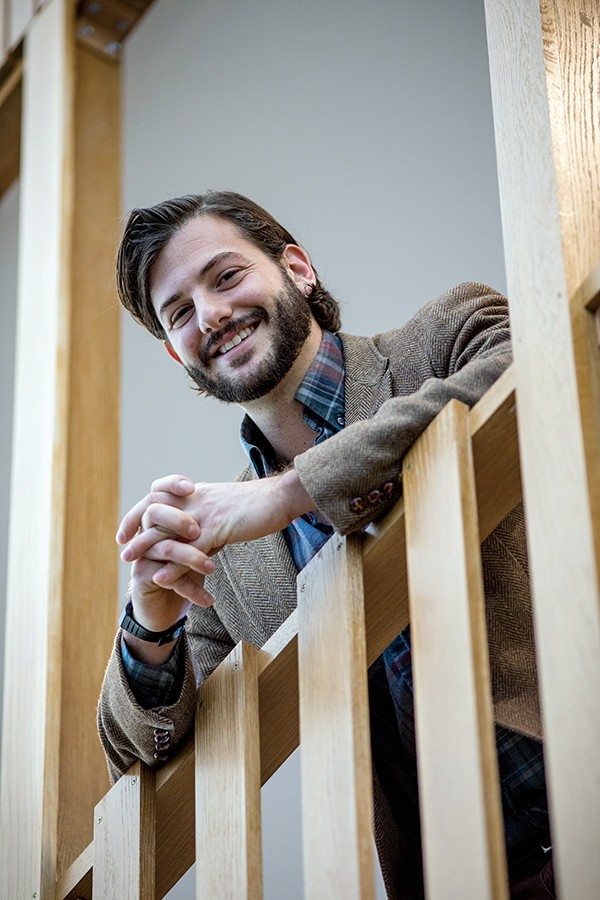
Miles Tamboli
Miles Tamboli
He grew up in Midtown, but Miles Tamboli found his passion on the farm. “It’s as natural as eating. You get the hang of it real fast. And it’s really calming to do that kind of work.”
Tamboli went to Tulane University, intending to study medicine. But as he learned more about the factors that go into health, he became more socially motivated. “I got more interested in the social and institutional factors that influence health. The solution to health inequality is to change the way we work as humans, to change the way we interact with each other, to change the job market, to change the way cities are laid out, to change the opportunities young people have.”
For the last three years, Tamboli has run the Girls, Inc. Youth Farm, in Frayser. Last year, he and his crew of 12 raised and distributed seven tons of food. “The girls who are part of the program really run the business. It’s a program for young women who want to do something different, something meaningful, and want to try out this farming thing.”
Tamboli served on Mayor Strickland’s transition team and the board of the Memphis Farmer’s Market. This year, he will start an Agri-STEM curriculum on Bolton High School’s 1,200 acres of land. “I think this is a really interesting time for Memphis. We’re seeing the impact of a lot of new investment, and a lot of growth in terms of the people who are staying here, and the people who are moving here. Growing up here, everyone wanted to leave. Now, I don’t see that so much.”
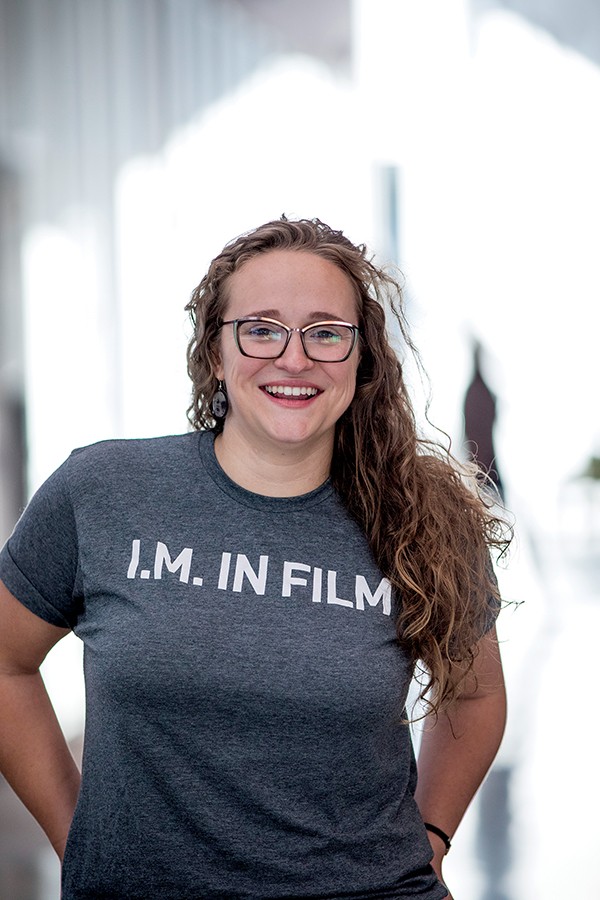
May Todd
May Todd
“I grew up interested in film,” says May Todd. “My dad and my grandpa used to show me old movies, and I really loved it. I didn’t know I could do it as a livelihood until I got to college.”
Todd was one of the first graduates of the film program at Ringling College of Art and Design in Sarasota, Florida. Her first real film was Paradise, Florida. “I’m really proud of it because we finished it! It’s on Amazon now.”
She served as a production coordinator on Tim Sutton’s exploration of the mass shooting phenomenon, Dark Night. “Here in Memphis, working on Silver Elves with Morgan Jon Fox gave me the same sense of camaraderie with a really small crew, working to get something that was creative, genuine, and compelling.”
In 2014, Todd met Ryan Watt of Indie Memphis and quickly got a job offer. “I loved Memphis, and I love movies, and I wanted to be a part of making Memphis proud of our movies.”
Indie Memphis has grown into one of the country’s most respected regional film festivals, and Todd has been instrumental in developing the successful Youth Film Festival. “I think it’s amazing to bring kids together who are making things in their back yard, or making films with their teachers’ help, to come together and find out that they’re not doing it alone — there’s a community there. We give them a theater experience, where they can invite their friends and say, ‘I’m not the nerd that missed that dance. I am a creative individual who made this movie!'”

Kirbi Tucker
Kirbi Tucker
For Kirbi Tucker, the University of Memphis is a family tradition. “My grandmother wanted to go to the University of Memphis, but was not allowed because blacks couldn’t attend.” But Tucker’s parents and her uncle got degrees from U of M. She remembers her mother taking her to the university when Tucker was seven. “We went to Richardson Towers, and my mom asked a young lady if we could see her dorm room. She told me, ‘This is where you’re going to go to school, and this is the dorm you’re going to stay in.'”
Today, Tucker is an admissions counselor, helping to recruit more than 5,000 students a year to the institution she loves — while also teaching courses on academic strategies and studying for her Ph.D in Education. “The students are concerned about whether or not they’re going to get a job once they graduate. But they’re also excited about doing great things in the community. A lot of my students want to help. They just need someone to help provide them with the information they need. What I tell my family friends is, if you have someone in your life who you can mentor, take that opportunity.”
Tucker says her number-one priority is decreasing income inequality. “I would really love to see the poverty rate in Memphis decrease. Right now, we’re at 27 percent, which is awful. I think about my ancestors, women who weren’t even allowed to read. That was the law! Now, me being able to go to any university I can get accepted to and to read and learn as much as possible in America, it’s inspiring to say the least.”
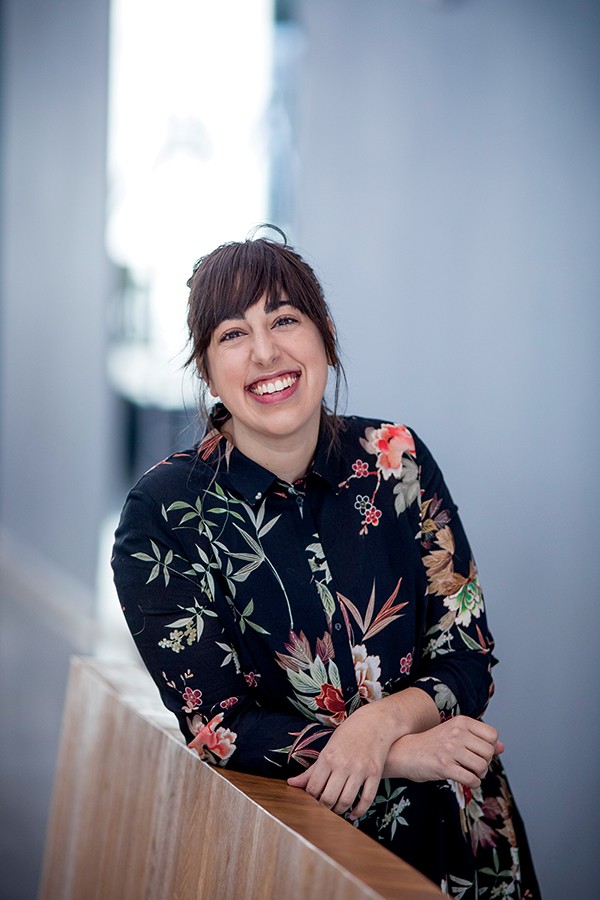
Molly Wallace
Molly Wallace
Molly Wallace grew up in the Washington, D.C., area, the daughter of a pair of educators who taught at Gallaudet University. “That’s what got me into Teach For America,” she says. “I grew up in public schools. Some of them are the best-funded public schools, and some of them are the worst. There’s just a lot of systemic racism and inequality at work there.”
She taught English for two years in some of the poorest neighborhoods in Memphis in charter schools. “They’re so focused on closing the achievement gap in literacy and math that they don’t have extracurricular stuff or electives or sports programs. A lot of Teach For America teachers will get to Memphis, be assigned English as their teaching position, and then they get to a classroom and there’s nothing there. We end up calling back home to mom and dad and saying, ‘I need you to ship me all of my books from my childhood.’
“Do you think the teachers at Germantown High are shipping their childhood books to their classrooms? No! I think it’s absurd that the students who need it the most don’t get it. As an English teacher, I could affect maybe 100 students per year. But a librarian could effect a whole school.”
Wallace found a willing partner in KIPP Memphis Collegiate Schools. “In one semester, we raised enough money for a library, and I built it the next semester. Now I’ve built another one in a different KIPP school. My goal is to keep doing this in all the KIPP schools. It’s really worth it when it comes to investing in kids’ reading and helping them build a reading habit.”

Scovia Wilson
Scovia Wilson
Scovia Wilson was born in Sudan in 1994, in the midst of one of the worst humanitarian crises of the last 50 years. “My dad died in that war, and we had to leave and go to a refugee camp in Kenya. So my life started there.”
Wilson learned English at a British school in Uganda, and her family came to Memphis when she was nine. Wilson excelled at Snowden Elementary School, and went to ECS in the eighth grade. “I had never been in one spot with so many white people,” she says. “But the teachers were very welcoming. I played all the sports. I was in clubs. I dove into it. My first priority was education. So many people sacrificed for us to be in America and to have this education.”
Wilson obtained her American citizenship while a sophomore at the University of Memphis, where she majored in journalism and public relations. After college, she started the Behind Bluff City podcast with OEM Network. One of the people she interviewed was photographer Katie Barber, who had traveled to Sudan with Operation Broken Silence, the Memphis nonprofit advocacy group devoted to helping the desperate masses in the war-torn country. Soon afterward, Wilson signed on with the group as a fund-raiser and activist.
“The genocide is still going on. Sudan’s dictator has orchestrated the death of over 2,000,000 people,” she says. “In the Nuba mountains, we have a school in the refugee camp that is helping a thousand kids right now — but there are 25,000 kids there.”
Wilson finds the current immigration debate in the U.S. appalling. “As a Sudanese refugee, the fact that there are people out there who are afraid of me is so overwhelmingly sad. You think immigrants are terrorists because you have no idea. They’re another human being who comes from God. It’s heartbreaking that people who are coming here for safety don’t feel safe. How I see it, everyone is a refugee. We’re always running away from something.”
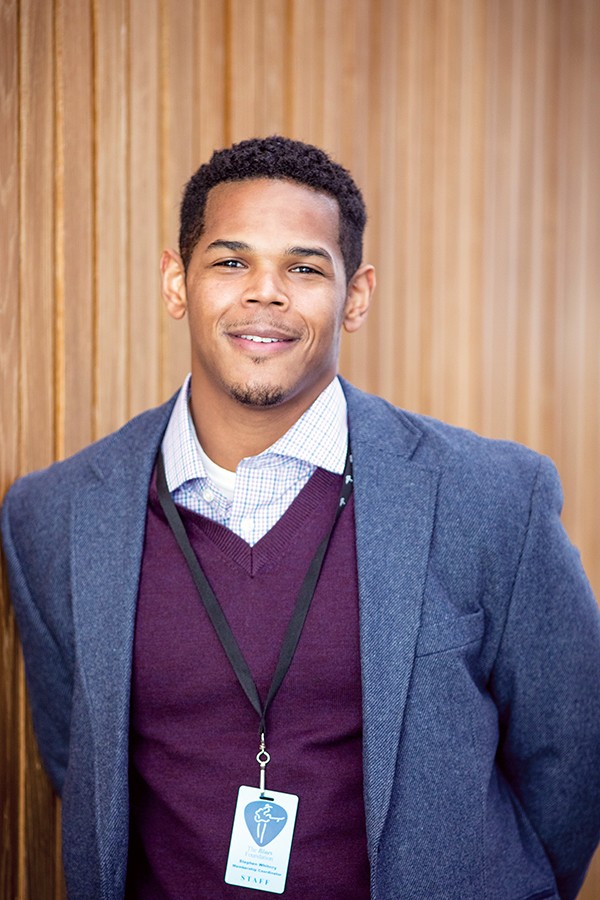
Stephen Whitney
Stephen Whitney
Stephen Whitney was a freshman in college when a deep fryer caught on fire, burning his arms, legs, and feet. “It was life-changing. It made me think, what do I truly enjoy? I asked, ‘What is my purpose, and how can I fulfill that purpose?'”
Through music, was the anwer he came up with. “Everyone and their brother in Memphis can play an instrument,” he says. “I realized that there’s nobody helping these musicians. Who is getting them gigs? I wanted to be the one making it happen.”
He co-founded Whitney Entertainment Brokers, which has put on more than 150 live events in the city, and in 2013, while still a student at University of Memphis, joined the Blues Foundation, where he works as the Membership, Sales, and Production Coordinator. He also founded the city’s first African-American craft brew festival, the Taste the Flavors Craft Brew Event, which benefits the Sickle Cell Foundation of Tennessee.
“Memphis’ strength is that we’re so rich in history — civil rights, music, and food. Another strength is, that we’re a diverse city. I want to connect the dots and help groups connect with each other.”
The Memphis Flyer would like to thank Ballet Memphis for the use of their beautiful new space located in Overton Square. For rental information, contact Allan Kerr at akerr@balletmemphis.org or 901-214-2425.
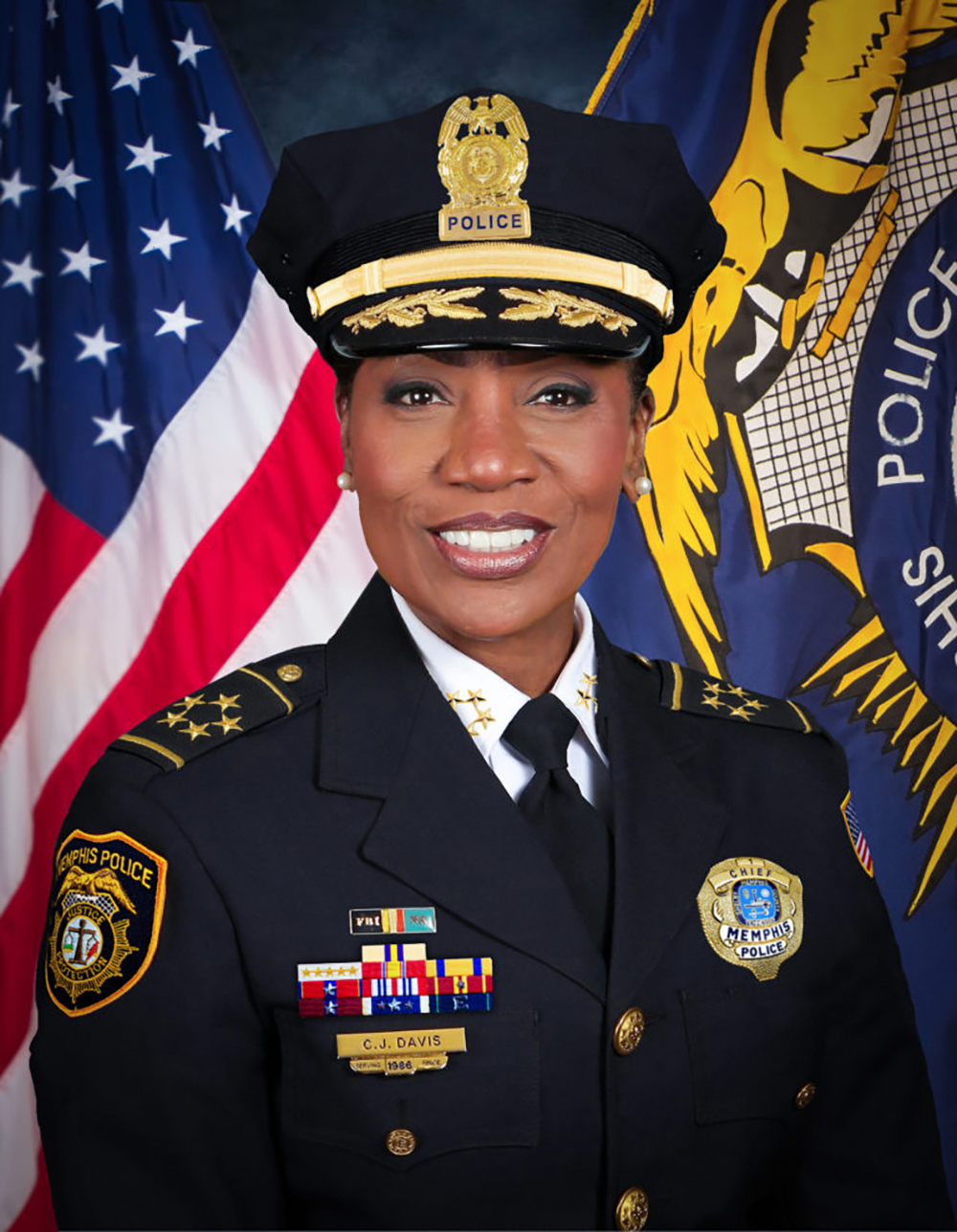
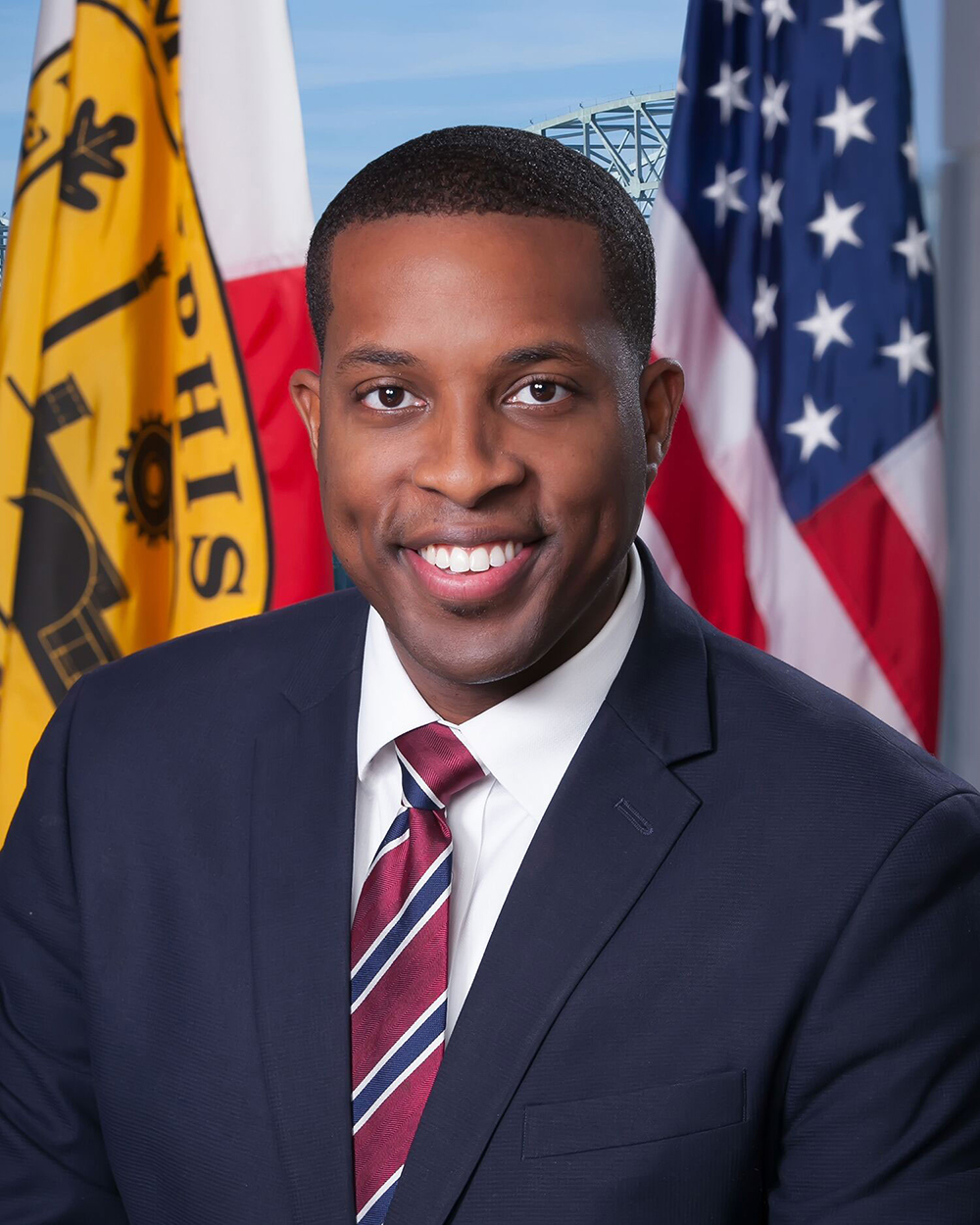
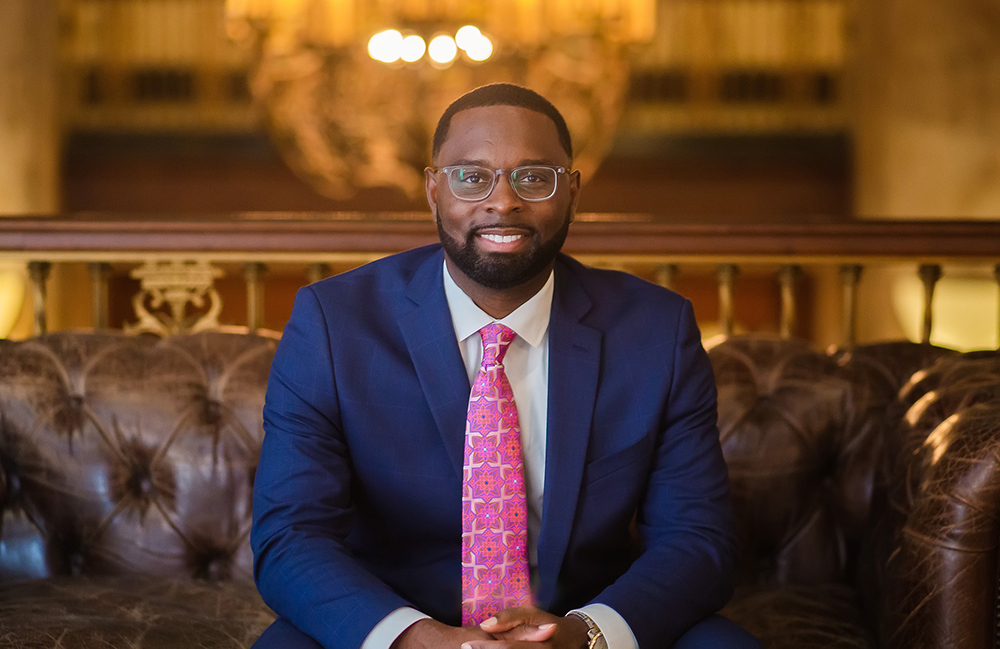
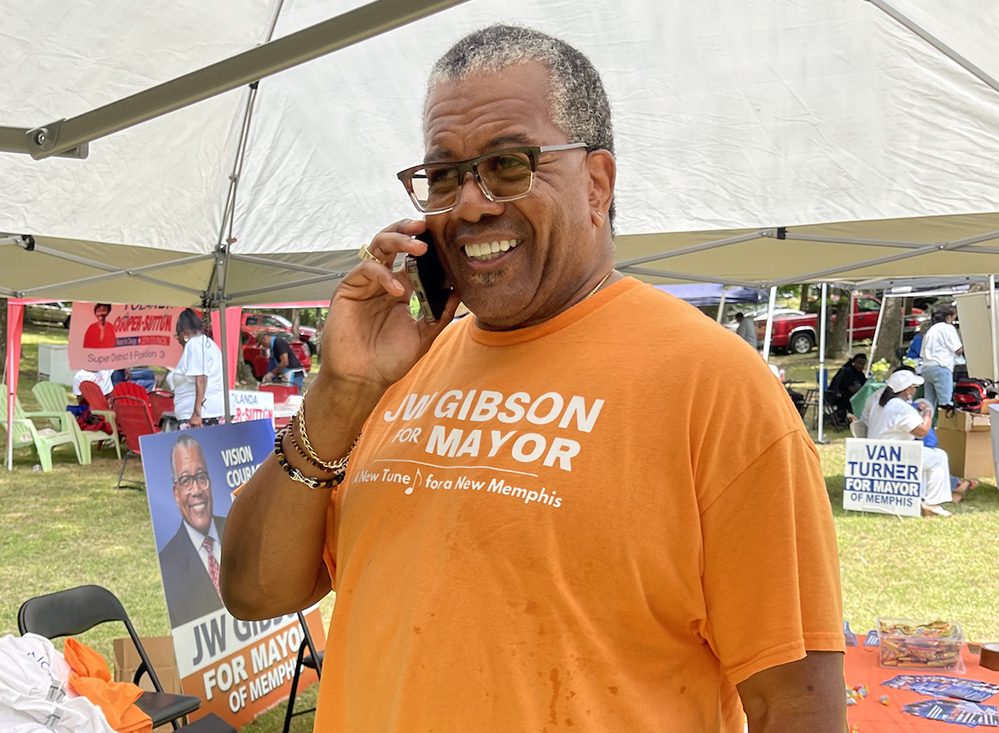

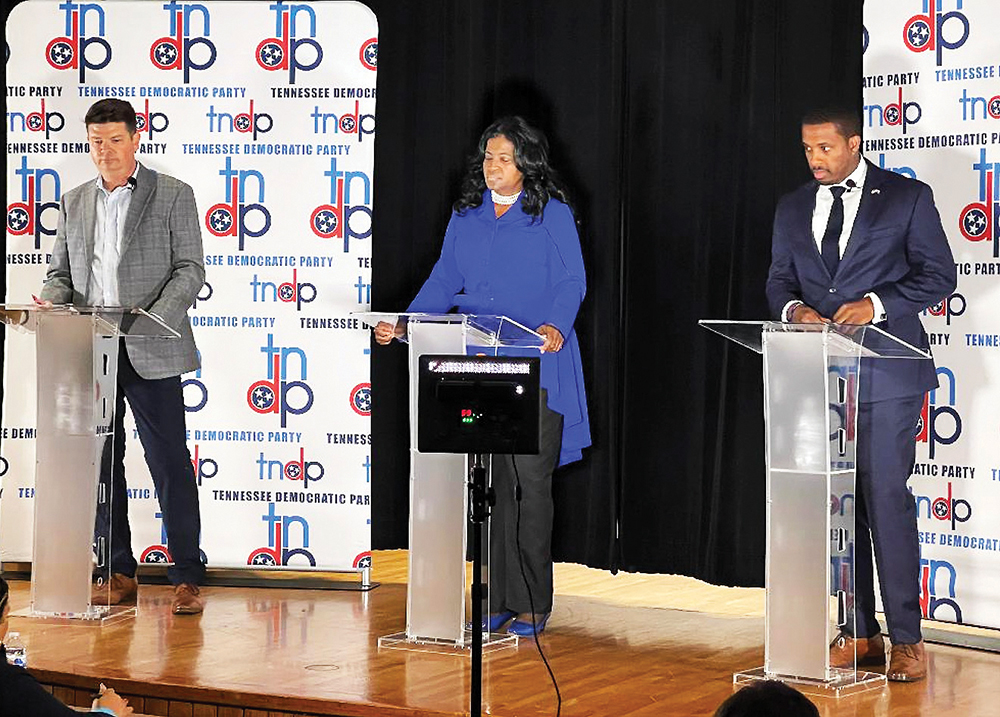


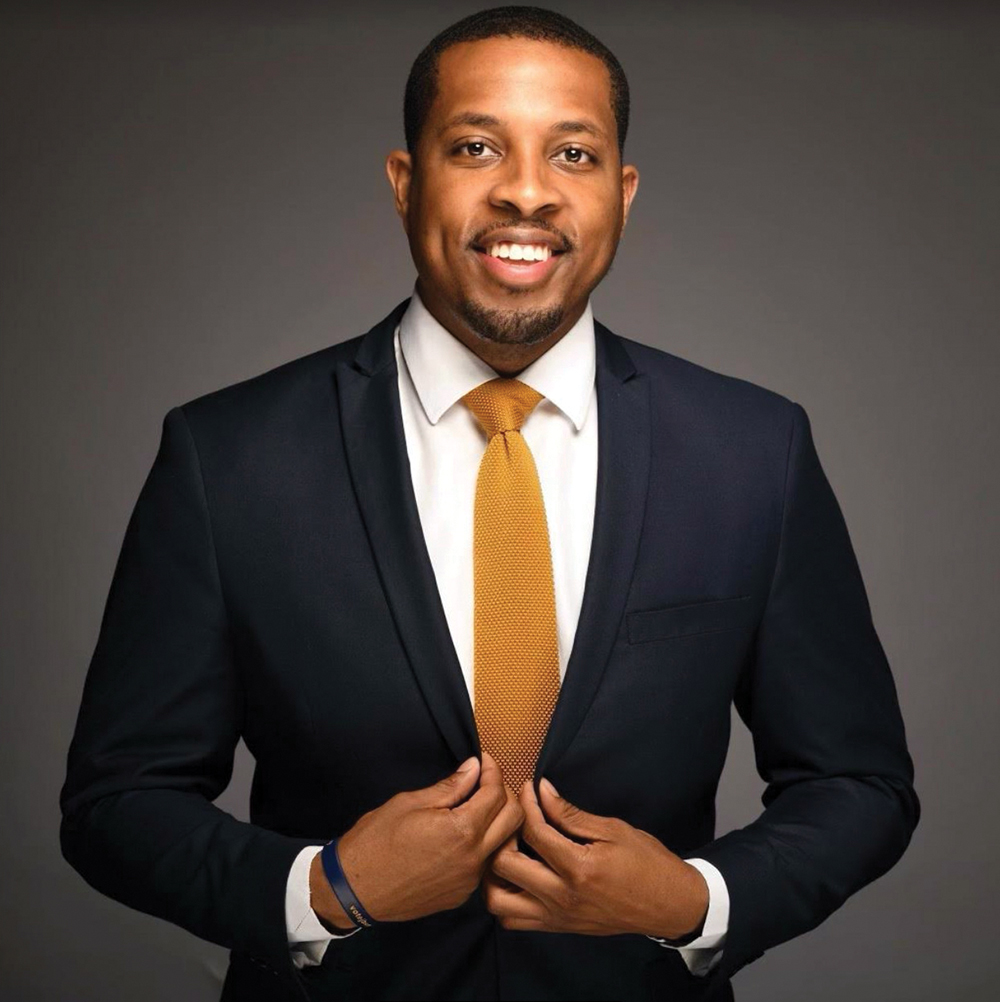
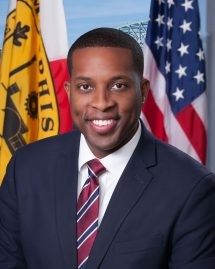 City of Memphis
City of Memphis 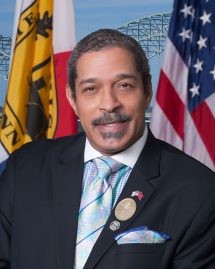 City of Memphis
City of Memphis 


















